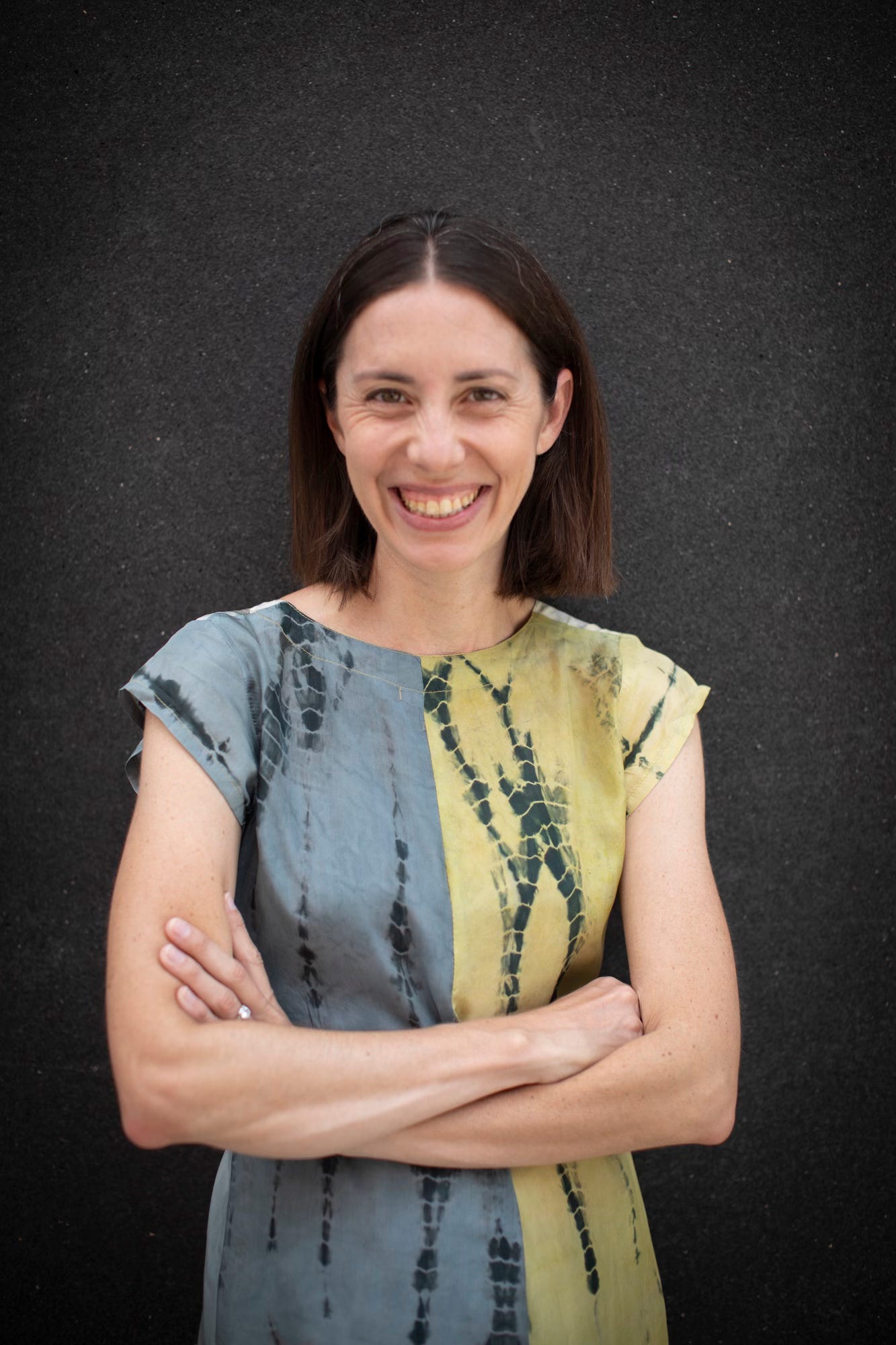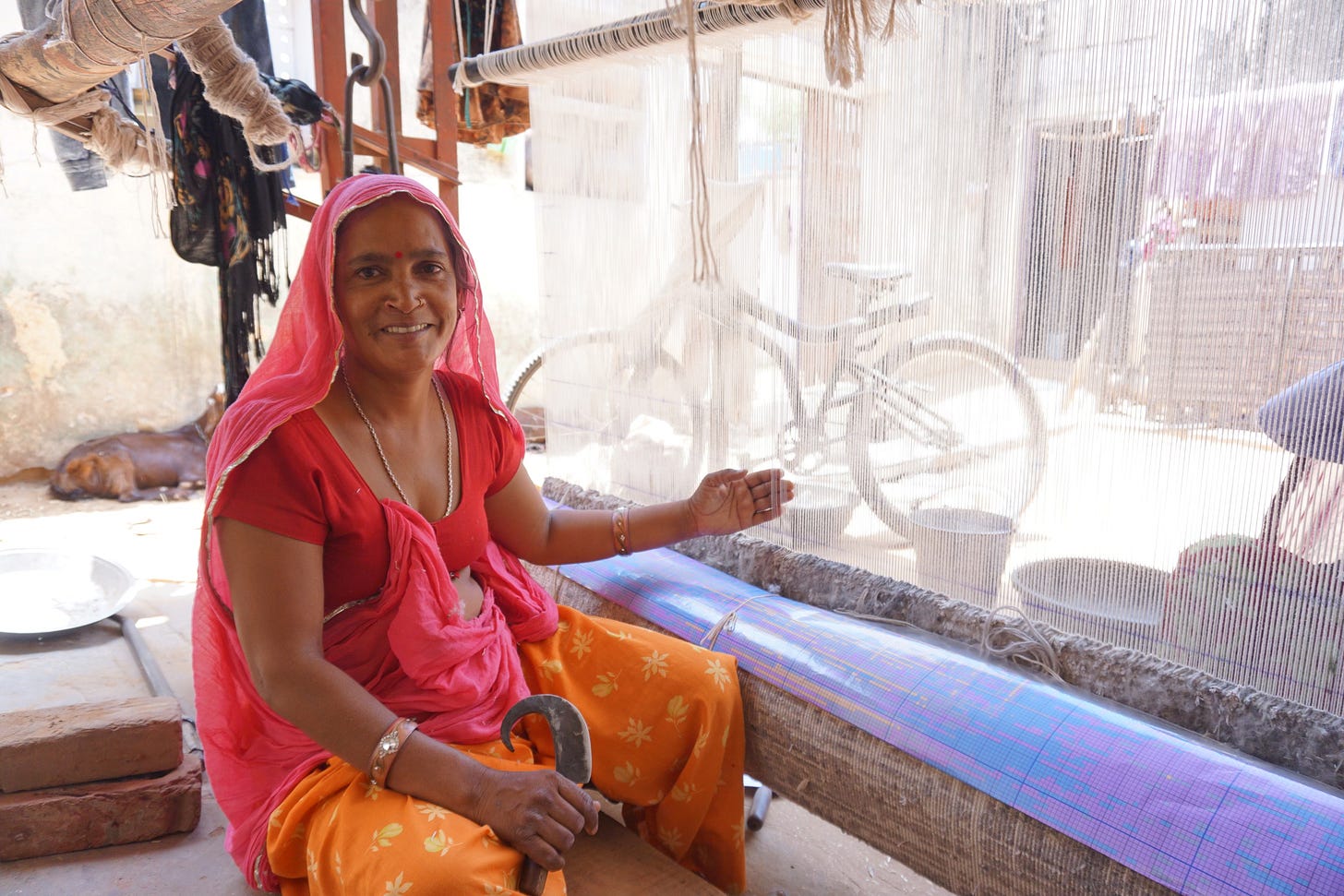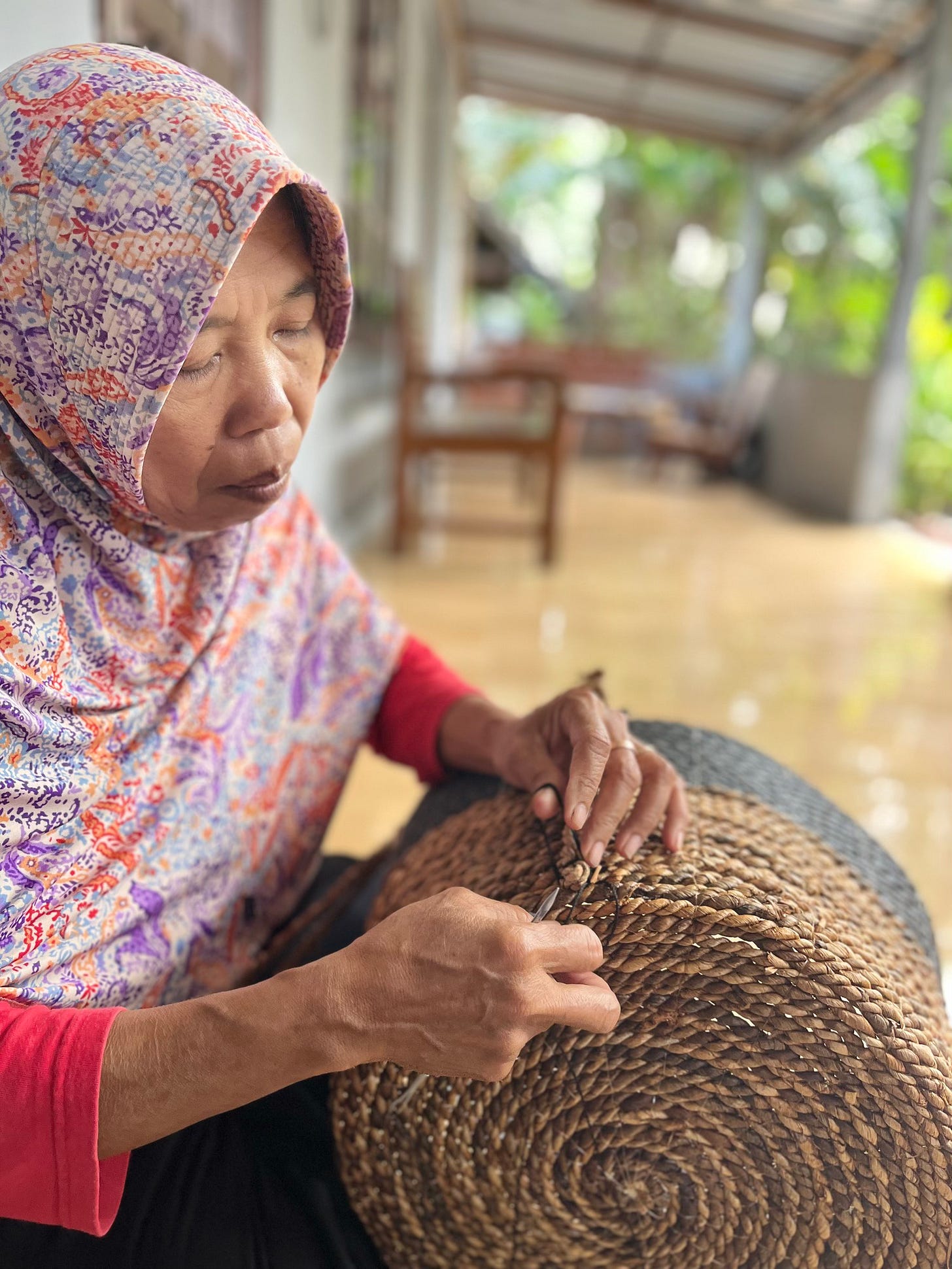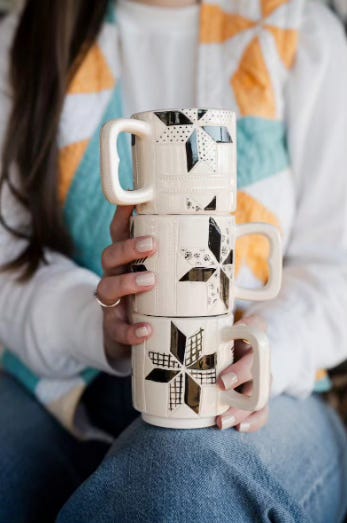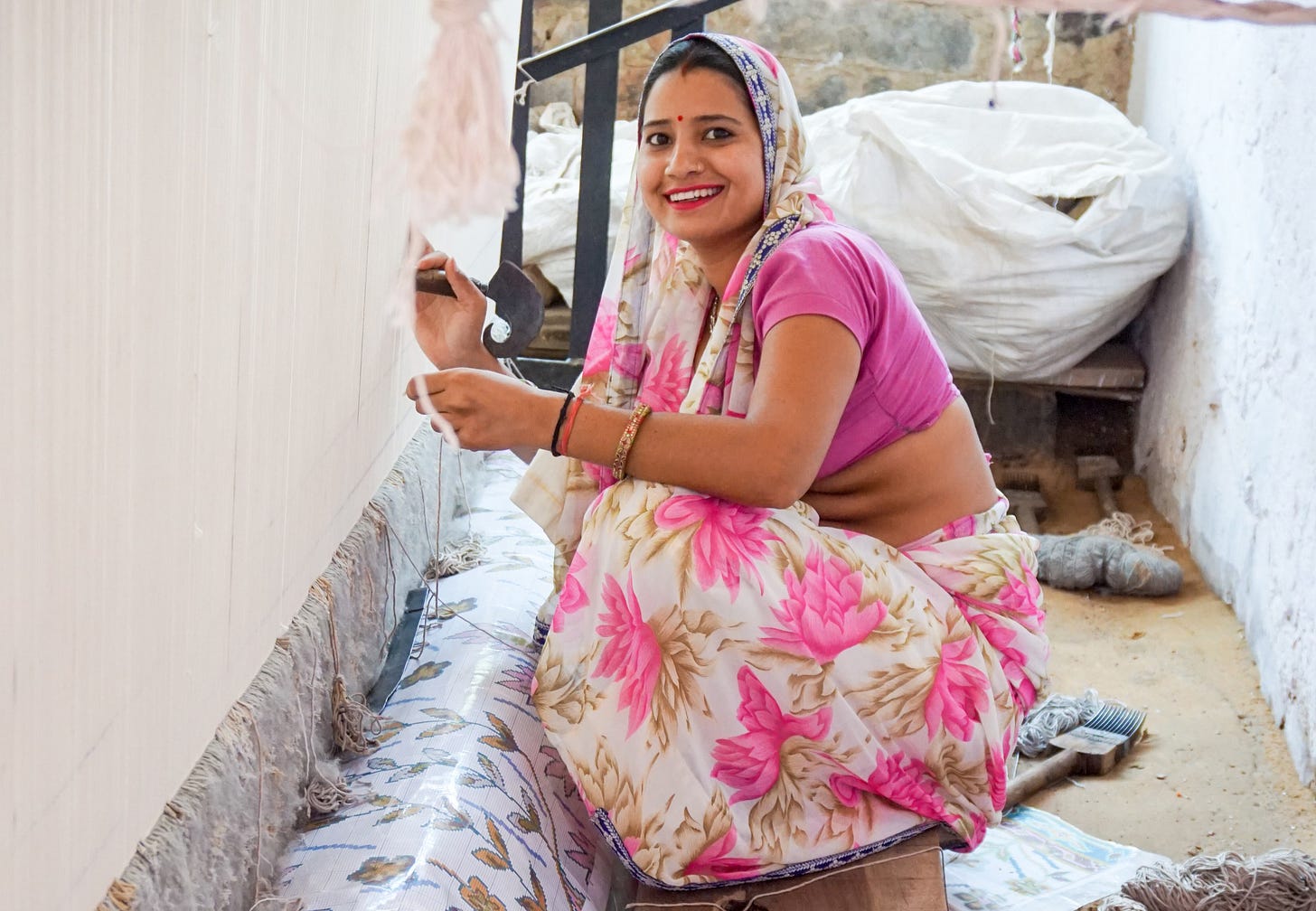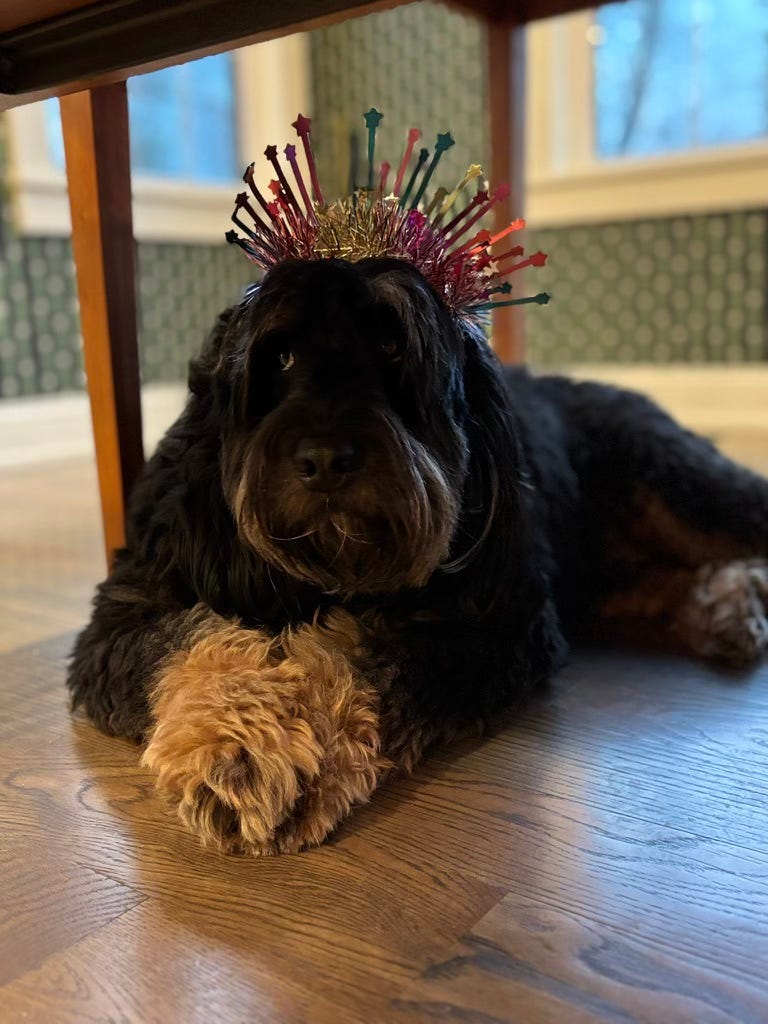Building Up Hand Crafted Businesses Globally
What is your name, where are you from?
Rebecca van Bergen, St. Louis, MO
What do you like most about St. Louis?
I love that I can walk to the library, go to the year round farmers market, and visit ample coffee shops. We moved back to St. Louis during Covid-19 pandemic, and loved the slower pace and being close to family. It is often said in jest, but we have found the stereotype to ring true that there is a kindness in the midwestern culture that is really special.
What’s your backstory?
My grandmother was my best friend throughout my life. From a young age, I possessed a fiery independence, and as a child still learning how to harness it, I discovered my grandmother to be my safe haven. She was a talented seamstress and running my fingers along fabric as her machine ticked away became a wonderful outlet for some of my unchanneled energy.
What was equally profound was the underlying force of female empowerment and creative expression.
When Muhammad Yunus won the Nobel Peace Prize in 2006, enthusiasm for microfinance exploded. New organizations in microfinance emerged. Many of them are driven by a social mission and earning a profit.
After graduating with a Master’s of Social Work, I understood social programs are less about public policy and more about working with people.
Lending small loans took me aback. In the US, a loan creates debt, not a business. The idea of getting a loan without understanding how to start a business concerned me.
My interest in generating economic opportunities in developing economies without the burden of debt drove me to found Nest. My vision focused on business development. I wanted to finance a woman purchasing a sewing machine and give her the skills to grow a business.
Currently, what are your income streams?
As a nonprofit, Nest relies on the generosity of individuals, corporations and philanthropies to fund our work in the U.S. and around the world.
We consult with an increasing number of brands and retailers to help them meet customer demand for unique, ethically produced handmade goods from makers in the US and around the world.
Beyond this, we receive grant support from a number of domestic and international philanthropies and corporate foundations to fund our programs with artisans and makers worldwide, including a global community of artisan businesses that we call Nest Guild, the e-learning platform each member of the Guild has access to, and Makers United, our flagship program based here in the United States investing in diverse and talented makers in the USA.
Finally, we are grateful for a growing community of generous individuals who believe in the work we’re doing in their cities, states, and around the world. Each gift makes a difference and it is the powerful combination of diverse stakeholders and charitable investors that makes Nest what it is.
How have you grown the business?
Nest is almost 20 years old! What started as a tiny seed of an idea in my St. Louis apartment has grown into a $6 million dollar nonprofit with a global footprint. Today, our Nest Guild boasts roughly 3,000 members, representing more than 125 countries, and employing more than 300,000 artisan workers in total.
Nest wouldn’t be where it is today without a community of amazing cheerleaders. I’m grateful to all of the people who believed in me and my idea (there are too many to name!) and put their belief into action.
Early on this looked like offering me office space (a desk or two in the corner of a company’s headquarters) and making introductions to brands’ decision makers to develop our programs. Over time, it has included collaborations with amazing craft communities and established design houses, which bolster Nest’s legitimacy within the industry.
And, while we pursue big steps through partnerships and collaborations, the Nest team values the principles of human-centered design. All of our programs and collaborations are co-created with our artisan and maker partners ensuring everything we do is rooted in their voices and interests.
What is your favorite product?
My favorite product changes regularly – the benefit (and curse!) of working in this sector is that I am constantly meeting new and incredibly talented artisans and makers!
We recently launched a program with Etsy focused on supporting makers from Appalachia. One of the makers, Kaylee Thornsberry, owner of Kaylee Thornsberry Art, makes pottery with hand-painted quilt patterns (check her out here).
Quilts were deeply important to the cultural movement in Appalachia but also in my own family. My great grandmother was a quilter as well – it was how my grandmother learned to sew. Those heirloom quilts adorn our house on beds and walls and I love Kaylee’s interpretation on clay.
If you could go back, would you do anything differently?
Truthfully, not much! I am a big believer in failing forward. When you found an organization so young (I was 24), you are bound to make mistakes. Over Nest’s lifespan I have made – and continue to make – plenty of them. Once the embarrassment wears off, mistakes are one of the best ways to learn and keep us all humble.
One of my greatest mentors, the former CEO of a major international retailer, taught me the importance of humble leadership – a form of leadership where you model learning and vulnerability. We actually made iteration a corporate value: that as a team we strive to constantly refine our programs in response to impact results, feedback from our stakeholders, and the dynamic world around us.
What are your goals?
At a time that feels marked by discord and division, I believe craft can be a unifier. It exists in every community around the world. Maybe our grandparents or great grandparents were seamstresses or cobblers.
Maybe our heritage traces to a region or country with a specific craft tradition that defines the community and culture. It brings people together and reminds us of humanity with each handmade piece created by human hands.
My hope is that as our world becomes more automated and technologically advanced, craft can bring us back to our shared values.
What platform and tools do you use?
We host our website on Squarespace which allows us to provide a responsive, interactive site for Nest partners worldwide. Through Squarespace, we collect donations and host a small ecommerce shop of “Favorite Finds” from makers in the Nest community.
The Nest Guild, our programming foundation, is a (free) global membership community for artisans, makers, and creative entrepreneurs. Through the Guild, members gain access to expert mentorship, peer support, and business development resources. We provide our learning curriculum to members through our Nest Connect platform that leverages a Learning Management System (LMS) to host the resources.
We love Flodesk to send beautiful emails. And Salesforce to organize our partners and stakeholders.
Do you have a favorite podcast?
99% Invisible and Articles of Interest are two podcasts that I love. They bring attention to everyday things, like clothes and kitchens, and the functional thought and design principles behind them.
I also enjoy How I Built This, which details the stories of inspiring entrepreneurs and their journeys to success.
Do you have pets?
We do! Our kids wore us down and we have a silly, fluffy dog named Oliver.
Where can we find you online?
You can learn more about Nest at buildanest.org.



